![Supreme Court Monthly Round-Up [October 2023]](https://www.livelaw.in/h-upload/2023/11/01/501285-supreme-court-monthly-round-up-october-2023.jpg)
Supreme Court Monthly Round-Up [October 2023]
Live LawNominal Index Pankaj Bansal v. Union of India, Basant Bansal v. Union of India 2023 LiveLaw 844 Aditya Khaitan & Ors. GEETHA, D/O LATE KRISHNA v. NANJUNDASWAMY 2023 LiveLaw 940 Anjali Bhardwaj & Ors v. Union of India 2023 LiveLaw 942 Manish Sisodia v. Central Bureau of Investigation 2023 LiveLaw 944 Judgments/Orders Mere Non-Cooperation To ED Summons Not A Ground For Arrest Under PMLA; ED Can't Expect Admission Of Guilt From Person Summoned: Supreme Court Case Title: Pankaj Bansal v. Union of India, Basant Bansal v. Union of India Citation: 2023 LiveLaw 844; 2023INSC866 In a significant judgment, the Supreme Court has ruled that a person cannot be arrested by the Directorate of Enforcement for mere non-cooperation in response to a summons issued under Section 50 of the Prevention of Money Laundering Act 2002. At the same time, the Court acknowledged that confining the applicability of Section 50 NDPS Act only to the physical body and excluding a bag carried by a person can defeat the purpose of the provision, which is to provide a safeguard against abuse of powers by the investigating agency during a search operation JJ Act | 'May' In S. 19 Be Read As 'Shall'; Children's Court Must Hold Inquiry On Whether Child Should Be Tried As Adult: Supreme Court Case Title: Ajeet Gurjar v. The State Of Madhya Pradesh, Criminal Appeal No.3023 of 2023 Citation: 2023 LiveLaw 857 The Supreme Court recently held that compliance with Section 19 subclause of the Juvenile Justice Act, 2015 which requires the Children’s Court to hold an inquiry as to whether the alleged offender is to be tried as a child or an adult is not a mere formality. On the contrary, if from such materials a prima facie satisfaction is reached upon application of judicial mind of an “offence” having been committed and there being sufficient ground for proceeding, the Magistrate is under no other fetter from issuing process,” a bench of Justice Dipankar Datta and Justice Bela M Trivedi observed Principles Of Applying Section 106 Of Evidence Act: Supreme Court Explains Case title: Balvir Singh v. State of Uttarakhand Citation: 2023 LiveLaw 861 The Supreme Court recently held that Section 106 of the Evidence Act does not inherently impose a burden on the accused but comes into play when the accused fails to provide any explanation regarding facts that should be within their knowledge, facts that could support theories compatible with their innocence. “A court of law cannot declare the reputation of a person based upon its own opinion merely because a person is educated and said to be God-fearing, that by itself will not create a positive reputation,” the Apex Court said NDPS Act | If Samples Are Drawn Violating Section 52A, Trial Stands Vitiated: Supreme Court Case Title: Yusuf @ Asif V. State, Criminal Appeal No.3191 Of 2023 Citation: 2023 LiveLaw 890 The Supreme Court on Friday, set aside the order of the High Court that had sentenced a man to 10 years’ imprisonment for being found in possession of commercial quantities of heroin.
History of this topic
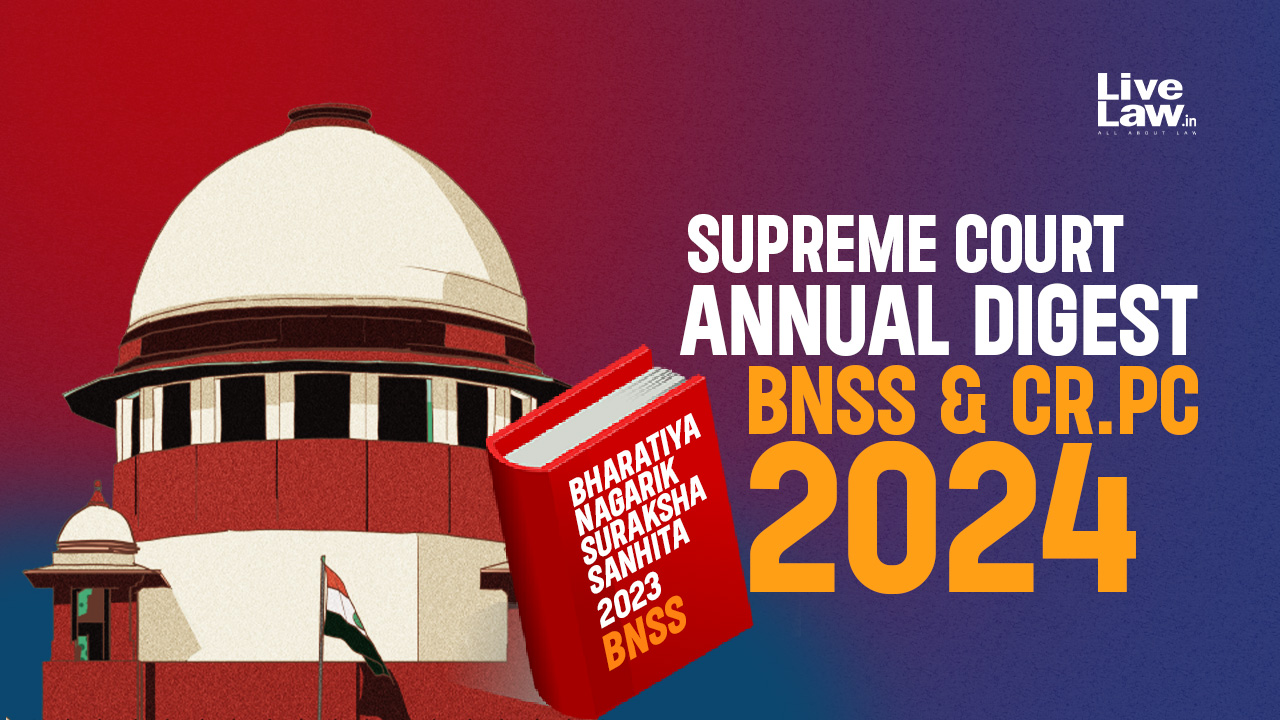
Supreme Court Annual Digest 2024: BNSS & Cr.PC
Live Law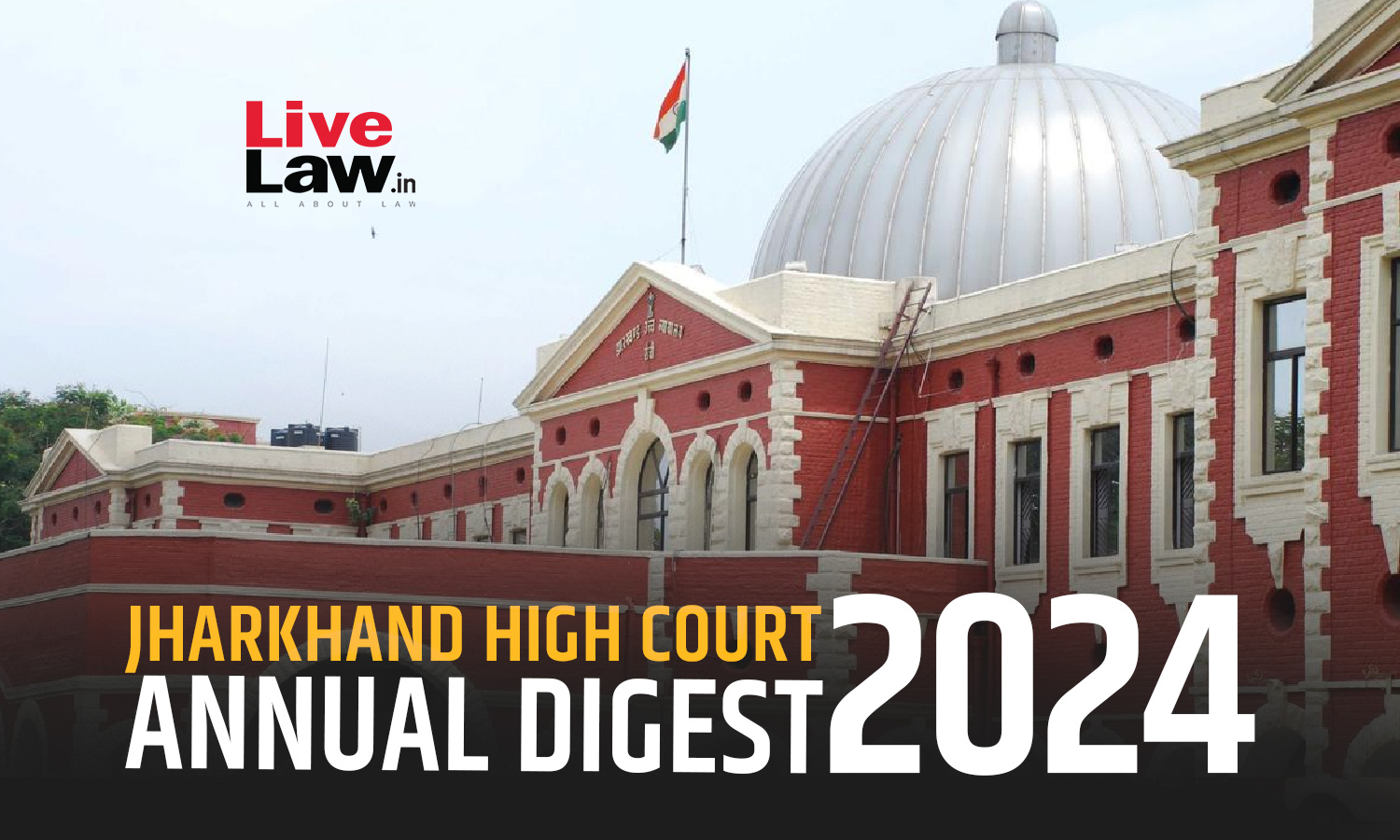
Jharkhand High Court Annual Digest 2024- Part I
Live Law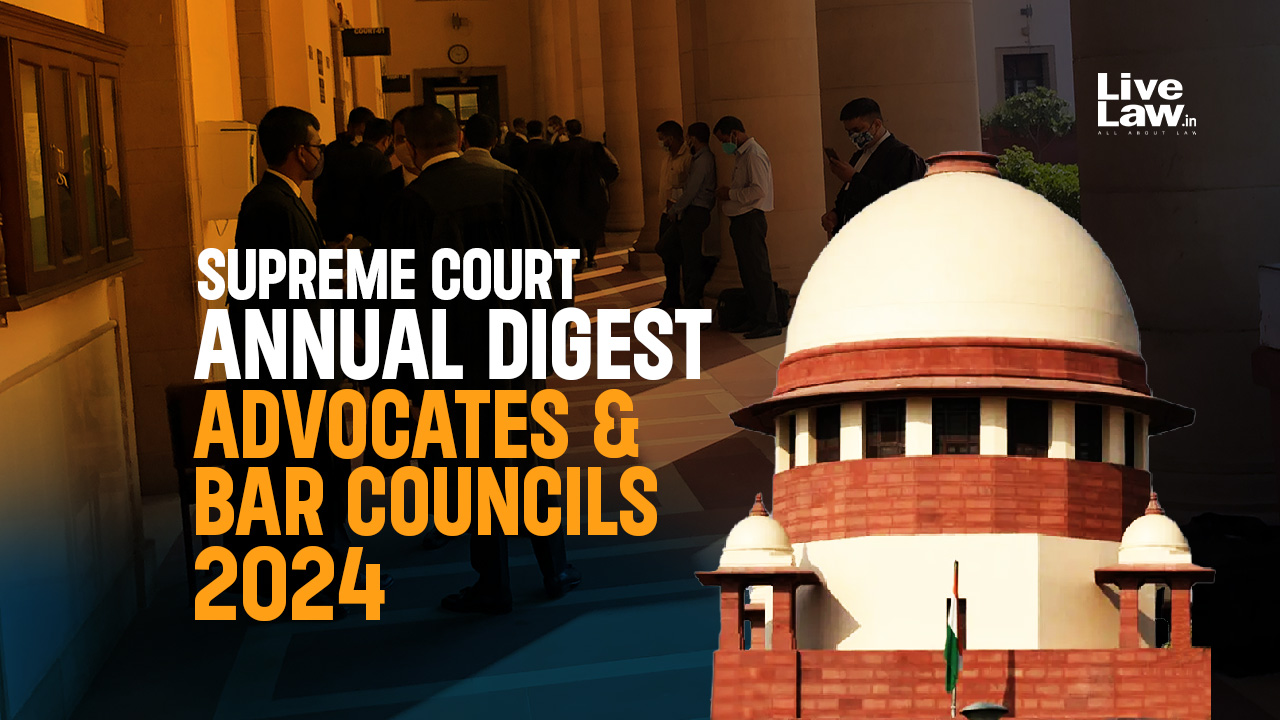
Supreme Court Annual Digest 2024 - Advocates & Bar Councils
Live Law![Karnataka High Court Monthly Digest: December 2024 [Citations: 490 - 532]](https://www.livelaw.in/h-upload/2023/03/01/461349-408717-karnataka-high-court-monthly-digest.jpg)
Karnataka High Court Monthly Digest: December 2024 [Citations: 490 - 532]
Live Law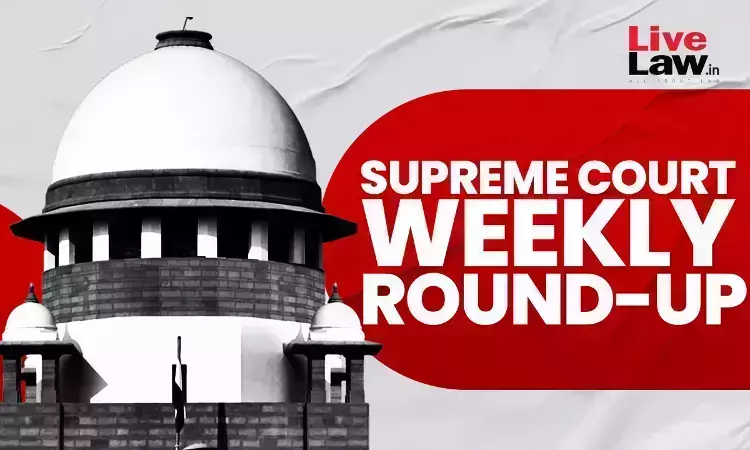
Supreme Court Weekly Round-up: December 30, 2024 To January 05, 2025
Live Law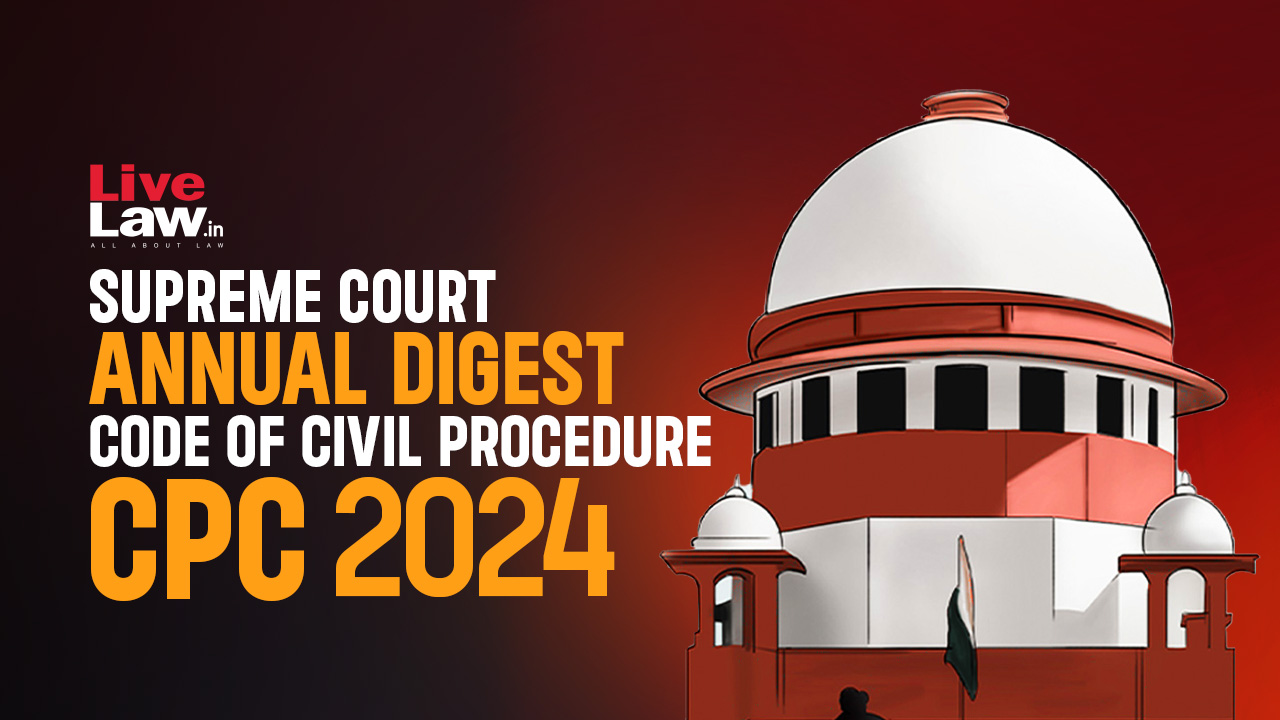
Supreme Court Annual Digest 2024- Code Of Civil Procedure (CPC)
Live Law
Madhya Pradesh High Court Monthly Digest: December 2024
Live Law![Kerala High Court Monthly Digest: December 2024 [Citations: 766 - 828]](https://www.livelaw.in/h-upload/2024/09/03/559124-750x450519604-750x450456553-408710-kerala-high-court-monthly-digest.jpg)
Kerala High Court Monthly Digest: December 2024 [Citations: 766 - 828]
Live Law![Kerala High Court Monthly Digest: December 2024 [Citations: 766 - 828]](https://www.livelaw.in/h-upload/2024/09/03/559124-750x450519604-750x450456553-408710-kerala-high-court-monthly-digest.jpg)
Kerala High Court Monthly Digest: December 2024 [Citations: 766 - 828]
Live Law
Supreme Court Monthly Round-up: December 2024
Live Law
Supreme Court Monthly Round-up: December 2024
Live Law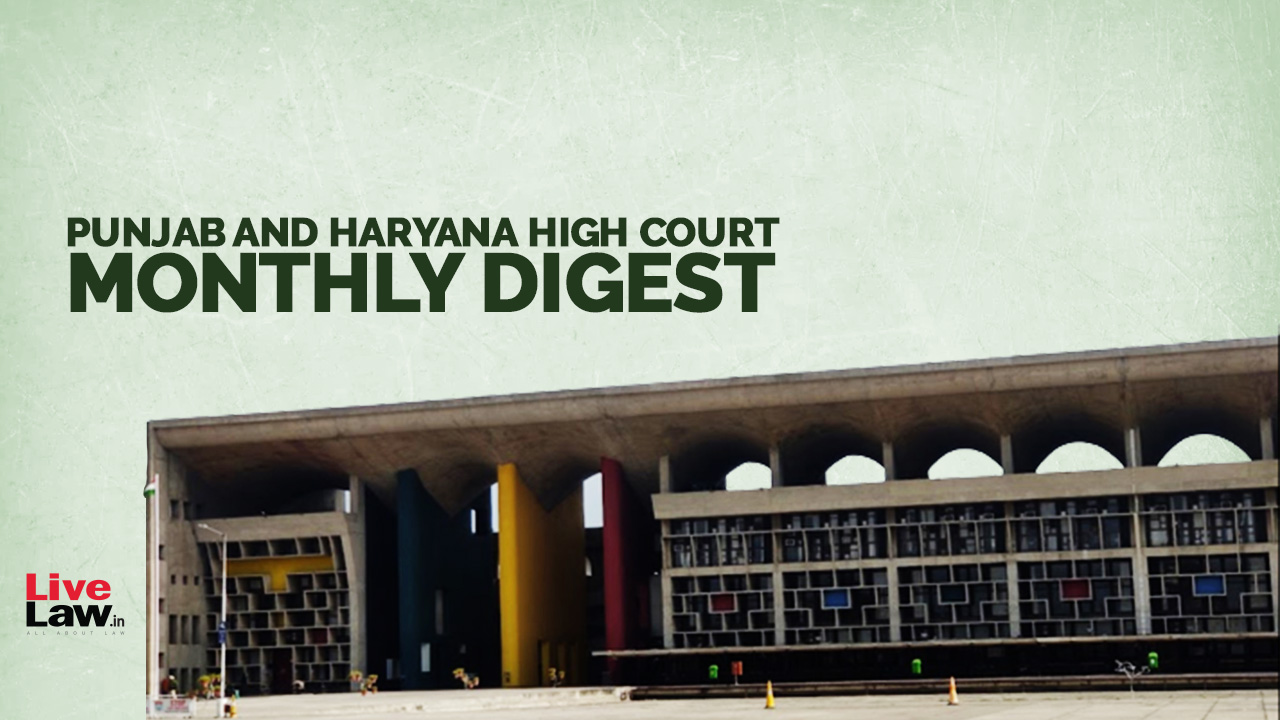
Punjab & Haryana High Court Monthly Digest: December 2024
Live Law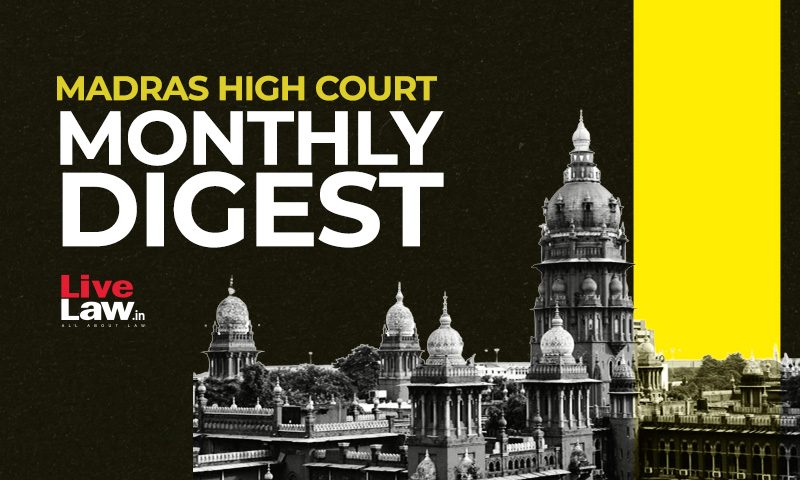
Madras High Court Monthly Digest - December 2024
Live Law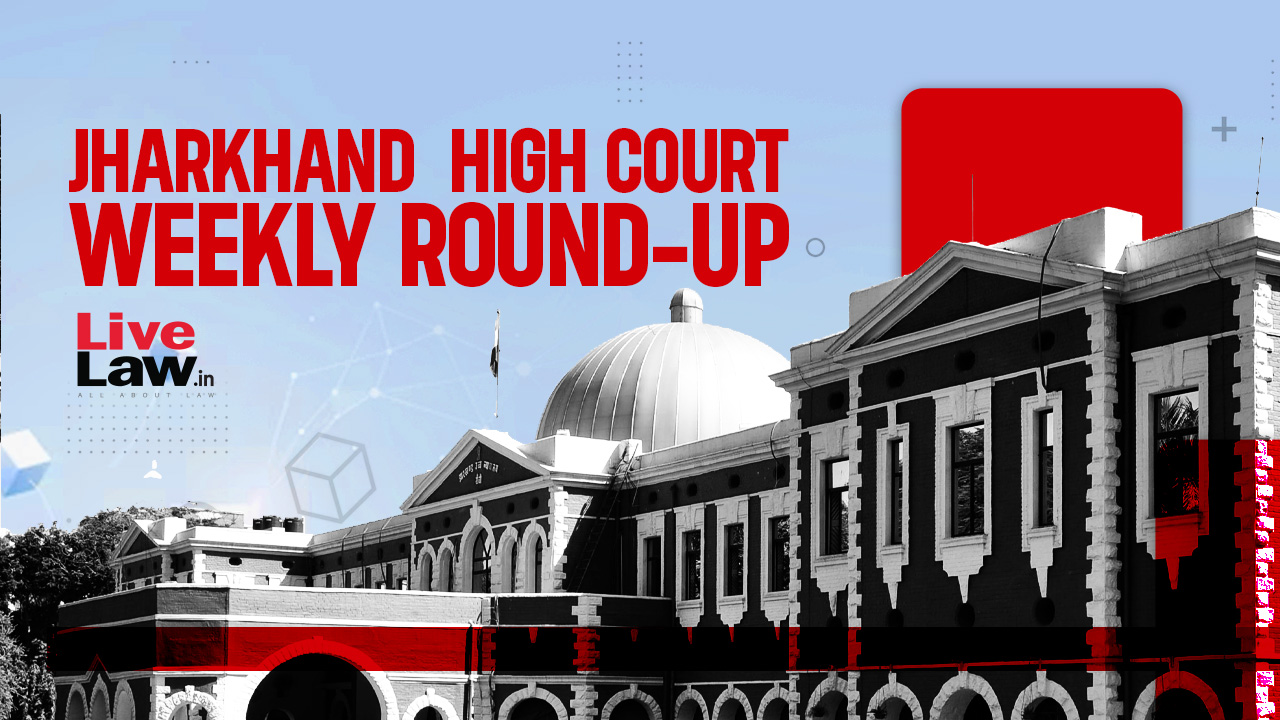
Jharkhand High Court Weekly Round-Up: December 23 - December 29, 2024
Live Law![Kerala High Court Quarterly Digest: October - December, 2024 [Citations: 608 – 828]](https://www.livelaw.in/h-upload/2024/04/01/531475-kerala-high-court-quarterly-digest-2024.jpg)
Kerala High Court Quarterly Digest: October - December, 2024 [Citations: 608 – 828]
Live Law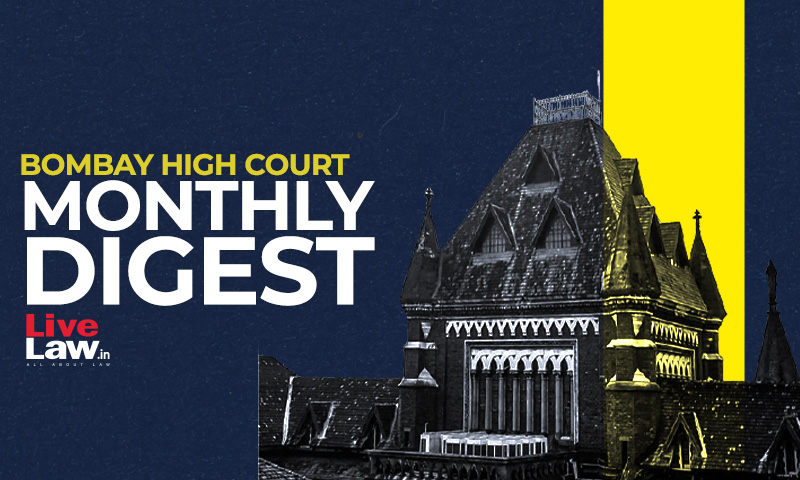
Bombay High Court Monthly Digest: December 2024
Live Law![Delhi High Court Monthly Digest: December 2024 [Citations 1305 - 1394]](https://www.livelaw.in/h-upload/2022/02/01/408682-delhi-high-court-monthly-digest.jpg)
Delhi High Court Monthly Digest: December 2024 [Citations 1305 - 1394]
Live Law![Kerala High Court Annual Digest 2024 [Part I]](https://www.livelaw.in/h-upload/2024/12/19/577406-kerala-high-court-annual-digest-2024.jpg)
Kerala High Court Annual Digest 2024 [Part I]
Live Law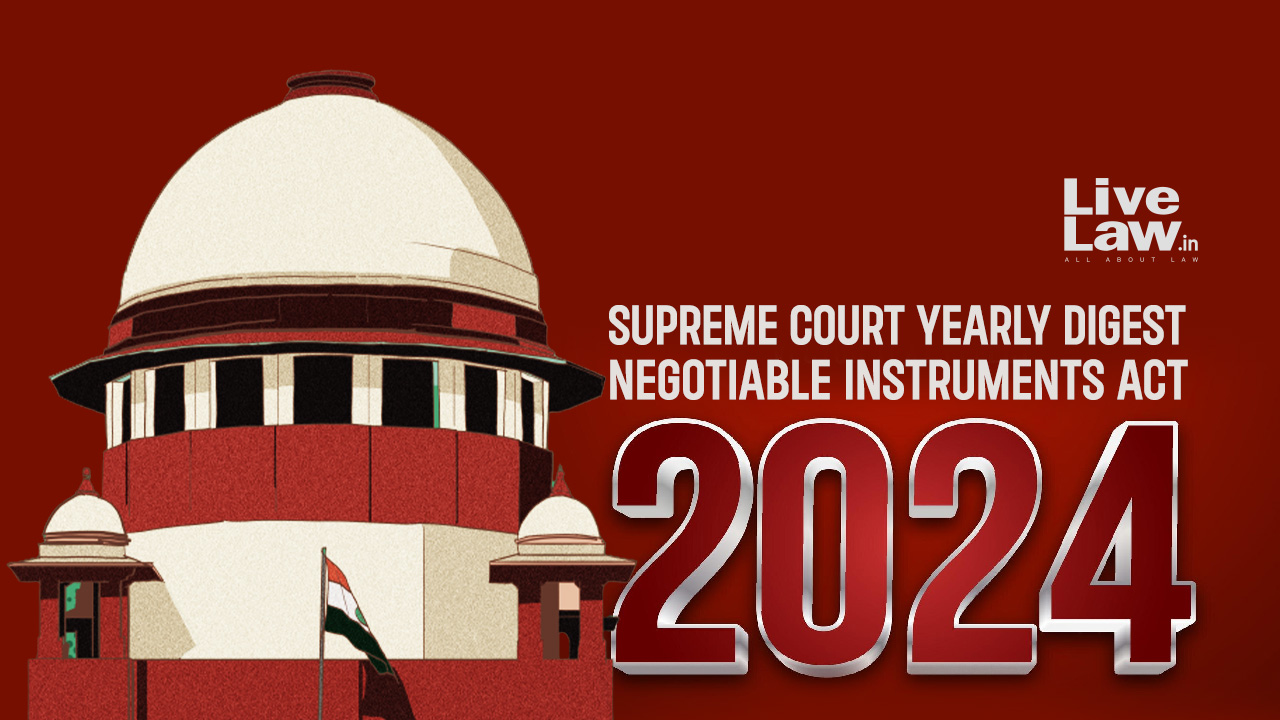
Supreme Court Yearly Digest 2024: Negotiable Instruments Act, 1881
Live Law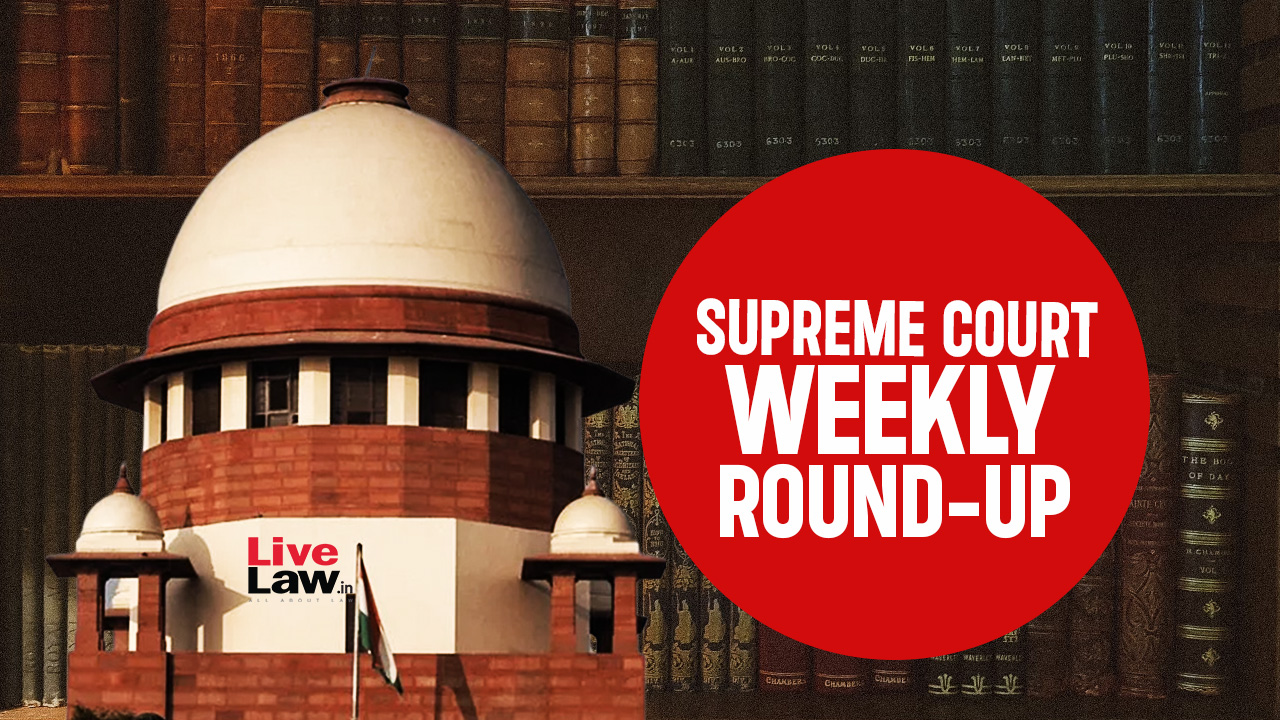
Supreme Court Weekly Round-up: December 16, 2024 To December 22, 2024
Live Law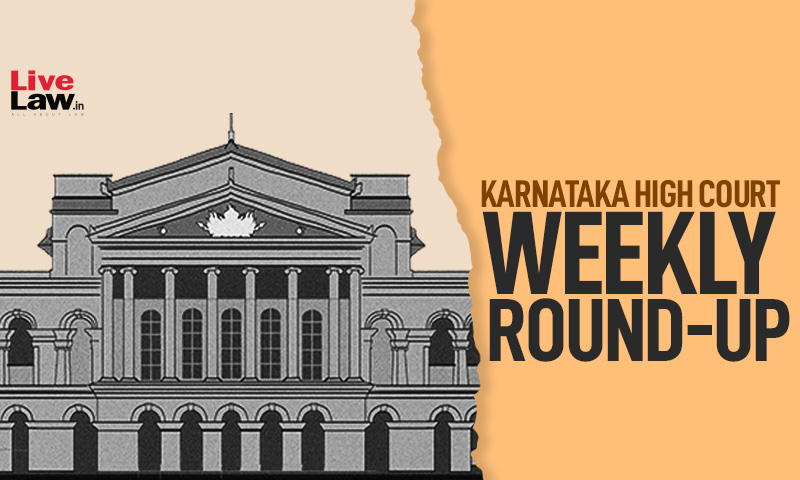
Karnataka High Court Weekly Round-Up: December 16 - December 22, 2024
Live Law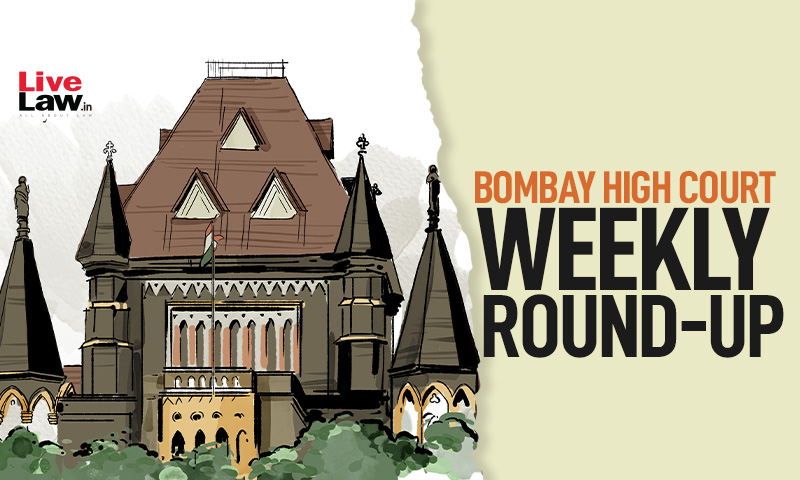
Bombay High Court Weekly Round-Up: December 16 - December 22, 2024
Live Law
Punjab & Haryana High Court Monthly Digest: November 2024
Live Law![Delhi High Court Monthly Digest: November 2024 [Citations 1193 - 1304]](https://www.livelaw.in/h-upload/2022/02/01/408682-delhi-high-court-monthly-digest.jpg)
Delhi High Court Monthly Digest: November 2024 [Citations 1193 - 1304]
Live Law
Supreme Court Weekly Round-up: December 9, 2024 To December 15, 2024
Live Law![Complete Supreme Court Quarterly Digest 2024- [July To September]](https://www.livelaw.in/h-upload/2024/05/31/542424-supreme-court-quarterly-digest-2024.jpg)
Complete Supreme Court Quarterly Digest 2024- [July To September]
Live Law![Karnataka High Court Monthly Digest: November 2024 [Citations: 454 - 489]](https://www.livelaw.in/h-upload/2023/03/01/461349-408717-karnataka-high-court-monthly-digest.jpg)
Karnataka High Court Monthly Digest: November 2024 [Citations: 454 - 489]
Live Law
Rajasthan High Court Monthly Digest: November 2024
Live Law
Calcutta High Court Monthly Digest: November 2024
Live Law
Supreme Court Weekly Round-up: December 02, 2024 To December 08, 2024
Live Law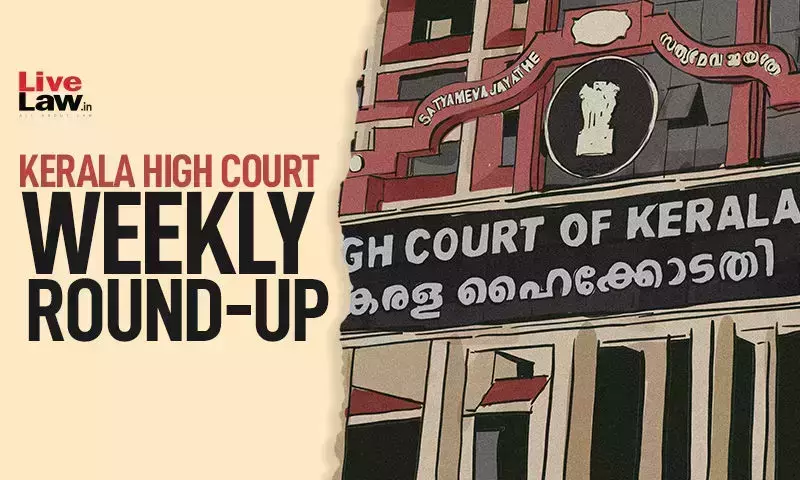
Kerala High Court Weekly Round-Up: December 2 - 8, 2024
Live Law
Karnataka High Court Weekly Round-Up: December 02 - December 08, 2024
Live Law
Bombay High Court Monthly Digest: November 2024
Live Law
Madras High Court Monthly Digest - November 2024
Live Law
Madhya Pradesh High Court Monthly Digest: November 2024
Live Law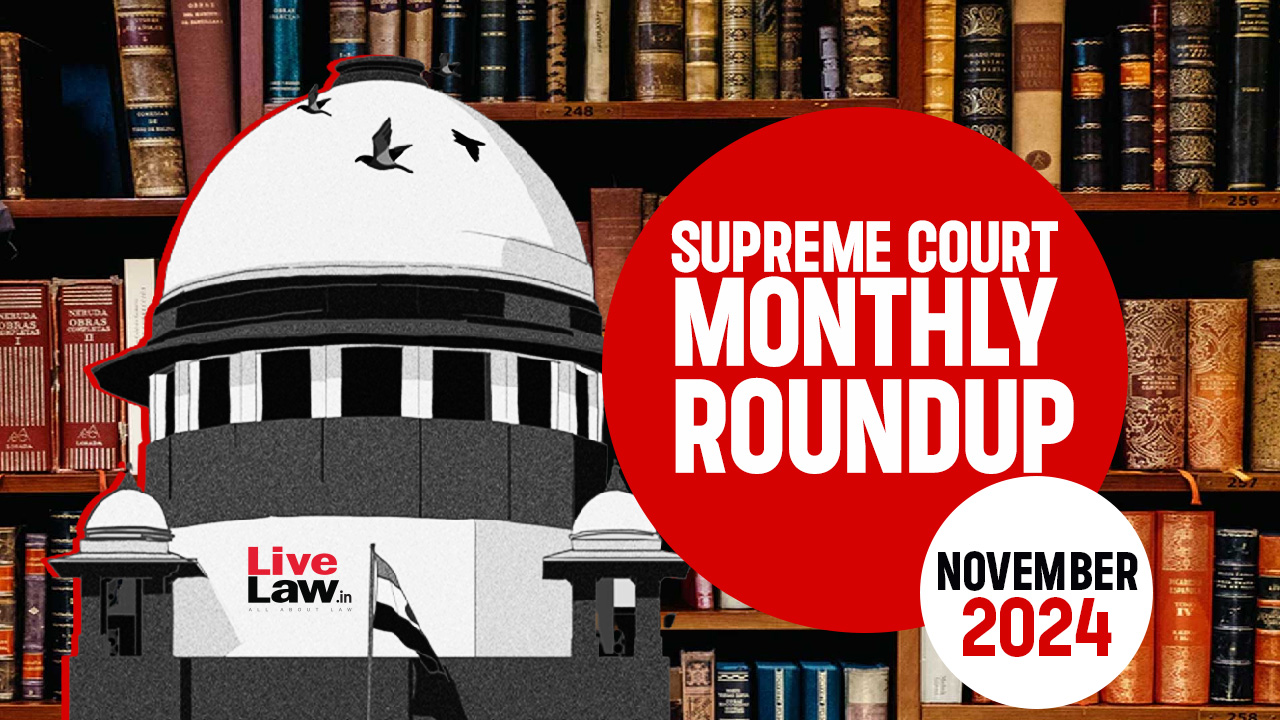
Supreme Court Monthly Round-up: November 2024
Live Law
Supreme Court Weekly Round-up: November 25, 2024 To December 01, 2024
Live Law
Kerala High Court Weekly Round-Up: November 25 - December 01, 2024
Live Law
Bombay High Court Weekly Round-Up: November 25 - December 01, 2024
Live Law
Kerala High Court Weekly Round-Up: November 18 – November 24, 2024
Live Law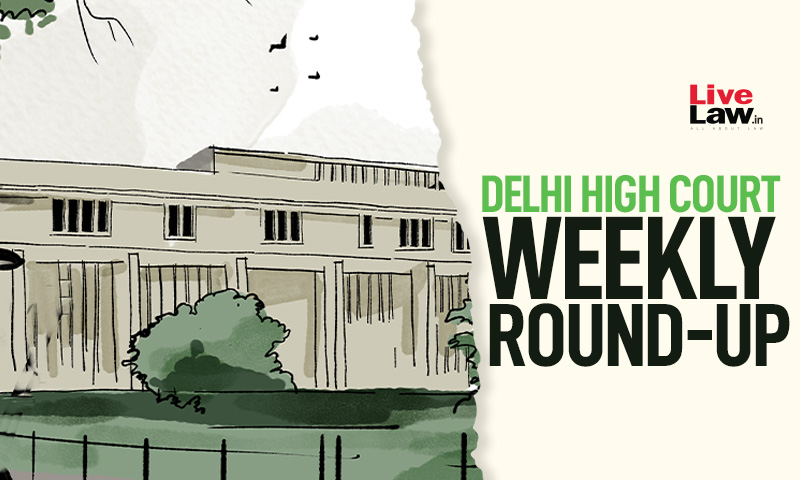
Delhi High Court Weekly Round-Up: November 18 To November 24, 2024
Live Law
Bombay High Court Weekly Round-Up: November 18 - November 24, 2024
Live Law
Delhi High Court Weekly Round-Up: November 11 To November 17, 2024
Live Law![Gujarat High Court Monthly Digest: October 2024 [Citations 144-163]](https://www.livelaw.in/h-upload/2023/08/05/484777-gujarat-high-court-monthly-digest.jpg)
Gujarat High Court Monthly Digest: October 2024 [Citations 144-163]
Live Law
Madhya Pradesh High Court Monthly Digest: October 2024
Live Law
Supreme Court Weekly Round-up: November 4, 2024 To November 10, 2024
Live Law
Supreme Court Weekly Round-up: November 4, 2024 To November 10, 2024
Live Law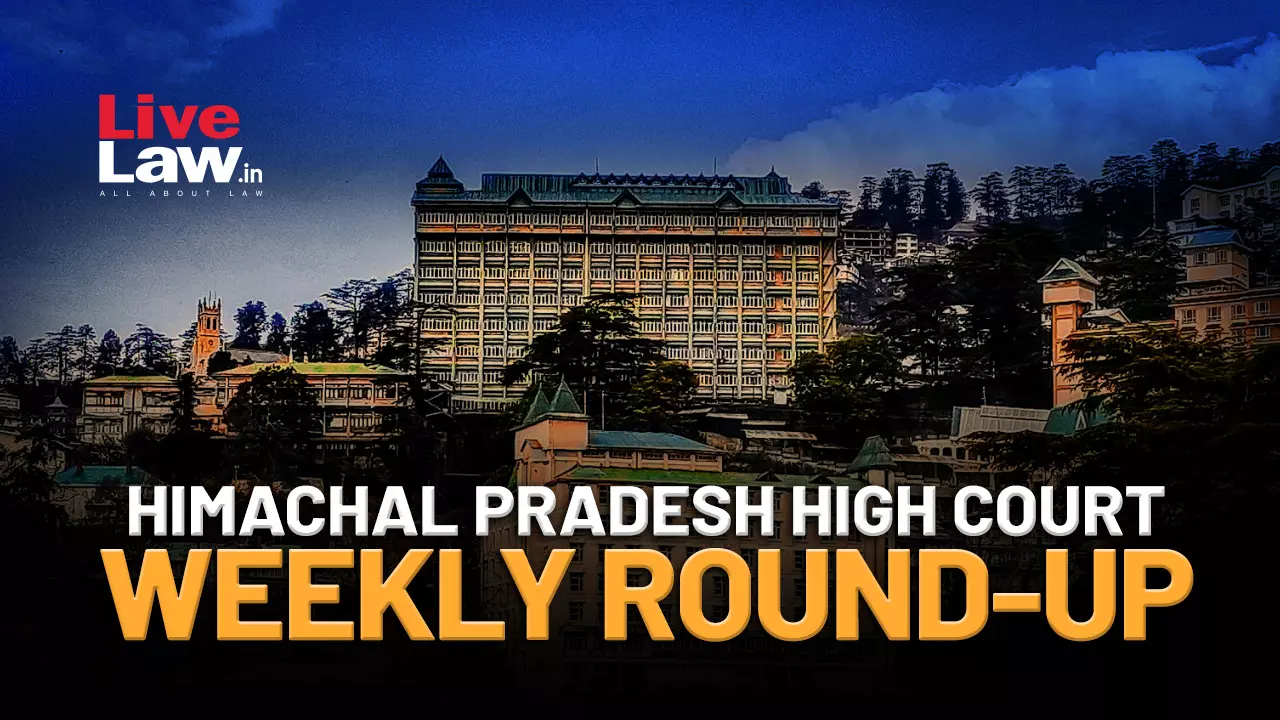
Himachal Pradesh High Court Weekly Round-Up November 4 - November 10 2024
Live Law
Jammu & Kashmir And Ladakh High Court Monthly Digest: October 2024
Live Law
Bombay High Court Monthly Digest: October 2024
Live LawDiscover Related
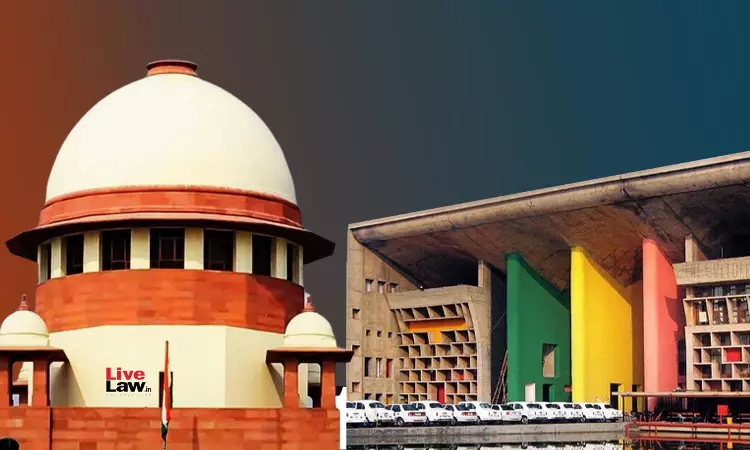
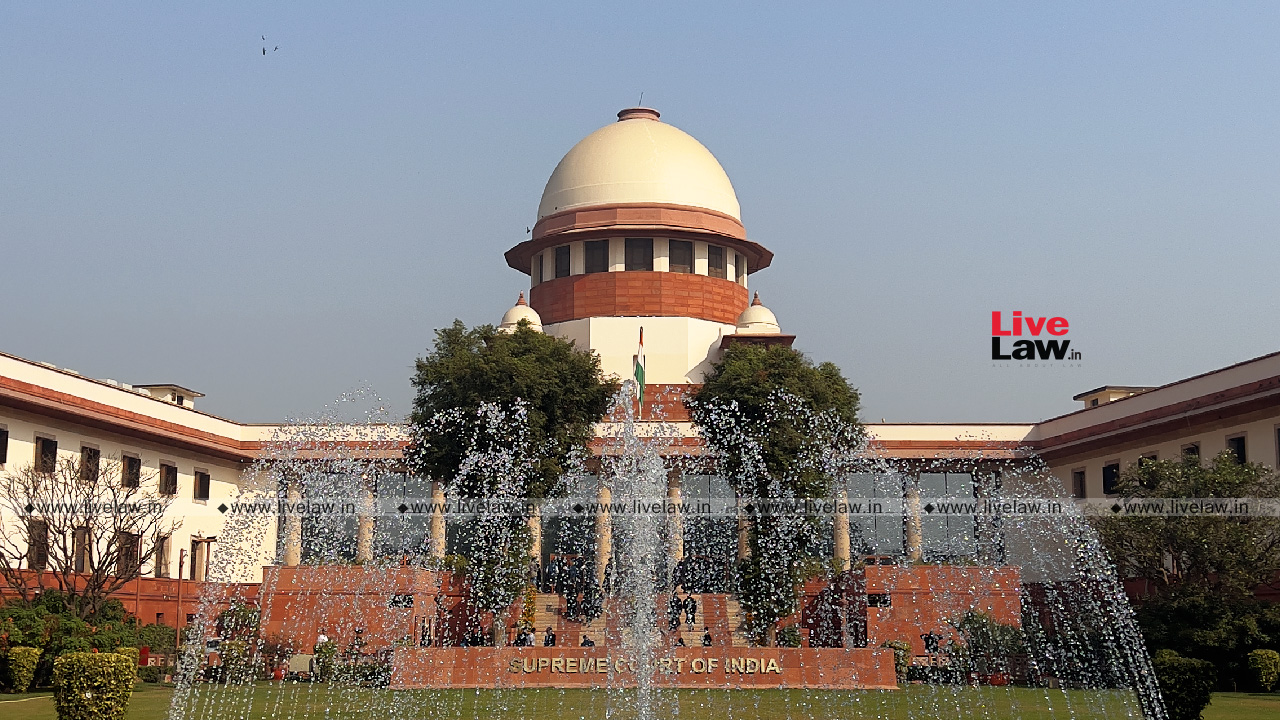
![Law Clerks Vacancy At The High Court Of Andhra Pradesh, Amaravati [Apply Now]](https://www.livelaw.in/h-upload/2025/01/07/580092-job-06.jpg)
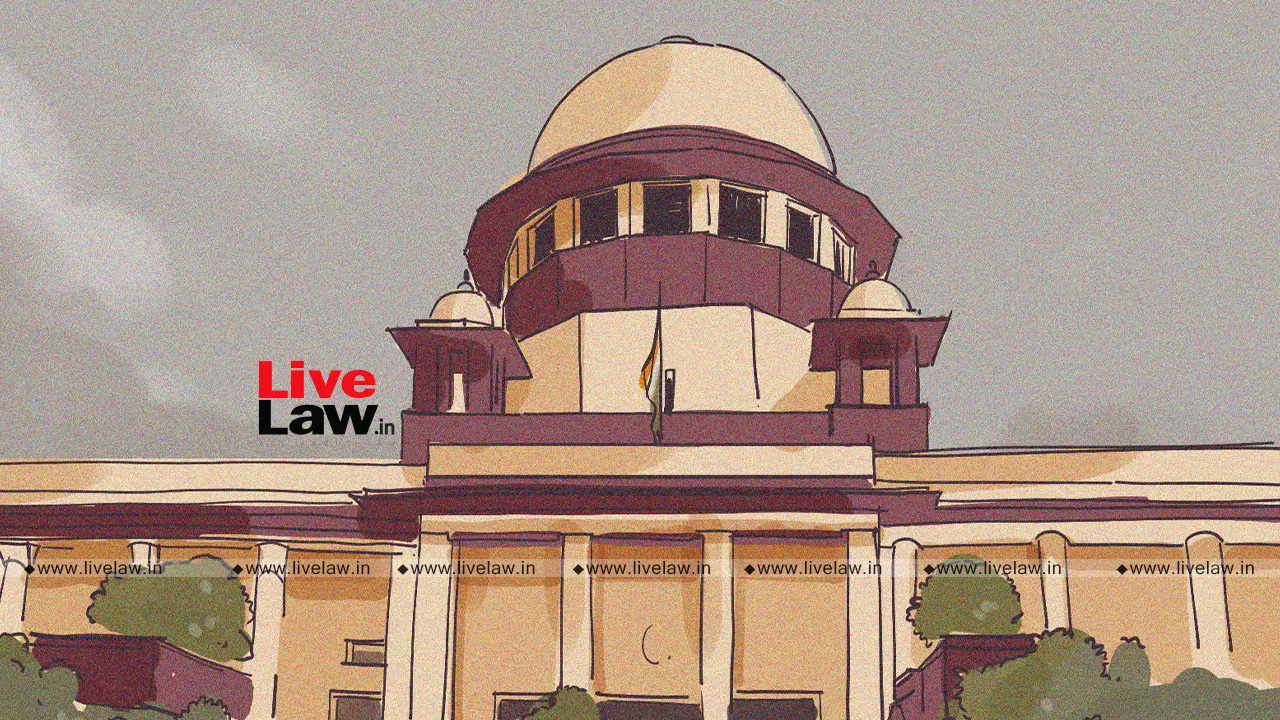
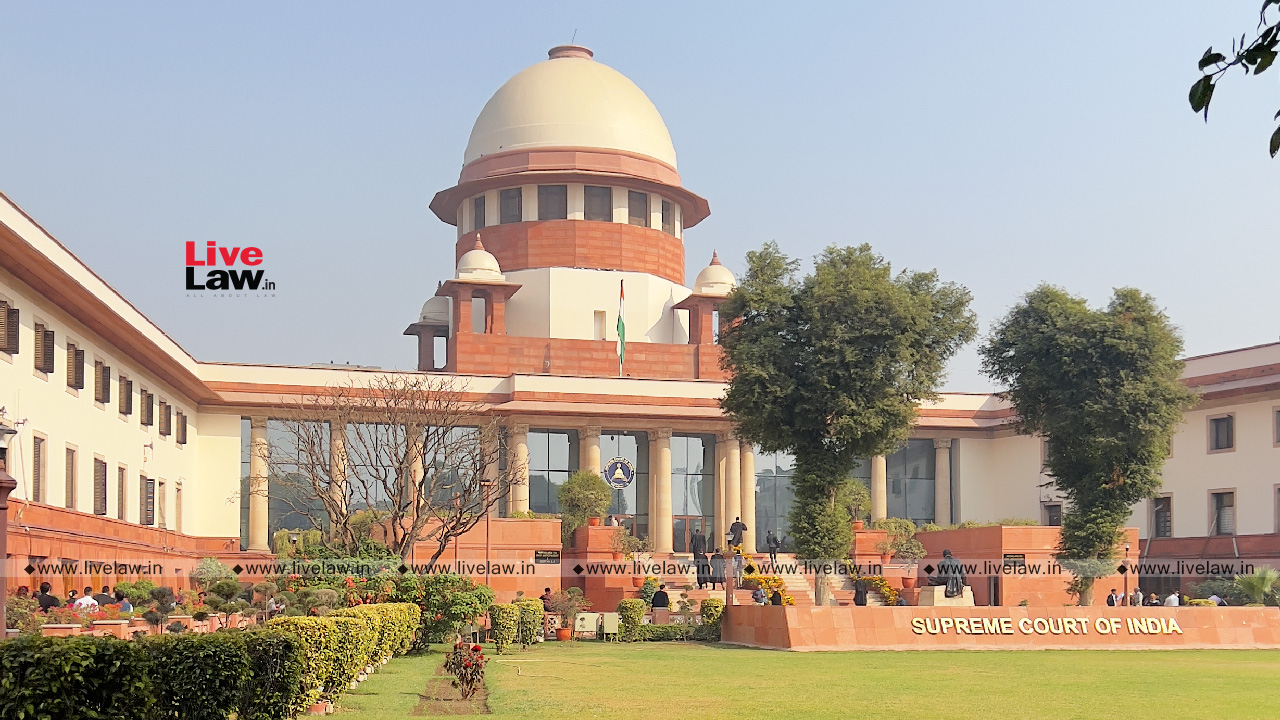
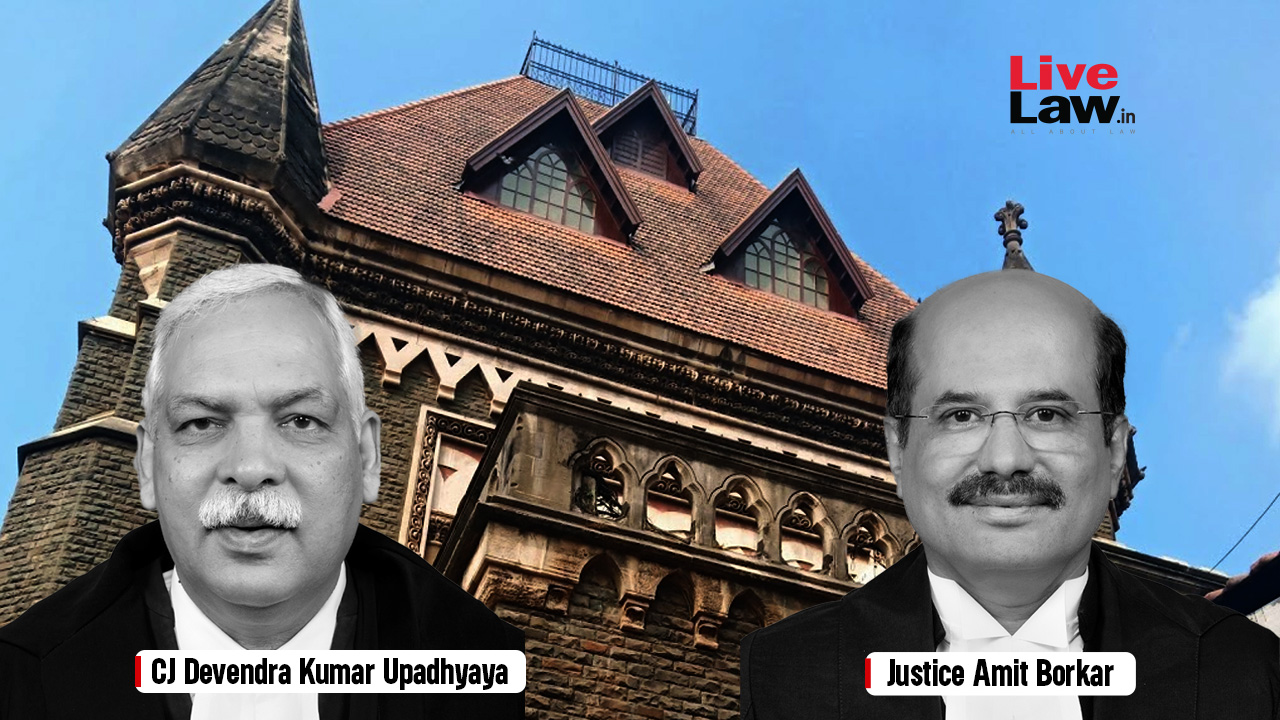
![Kerala High Court Annual Digest 2024: Part II [Citations: 276-550]](https://www.livelaw.in/h-upload/2024/12/19/577406-kerala-high-court-annual-digest-2024.jpg)

![Delhi High Court Annual Digest 2024: Part III [Citations 801 - 1200]](https://www.livelaw.in/h-upload/2024/12/19/577393-delhi-high-court-annual-digest-2024.jpg)
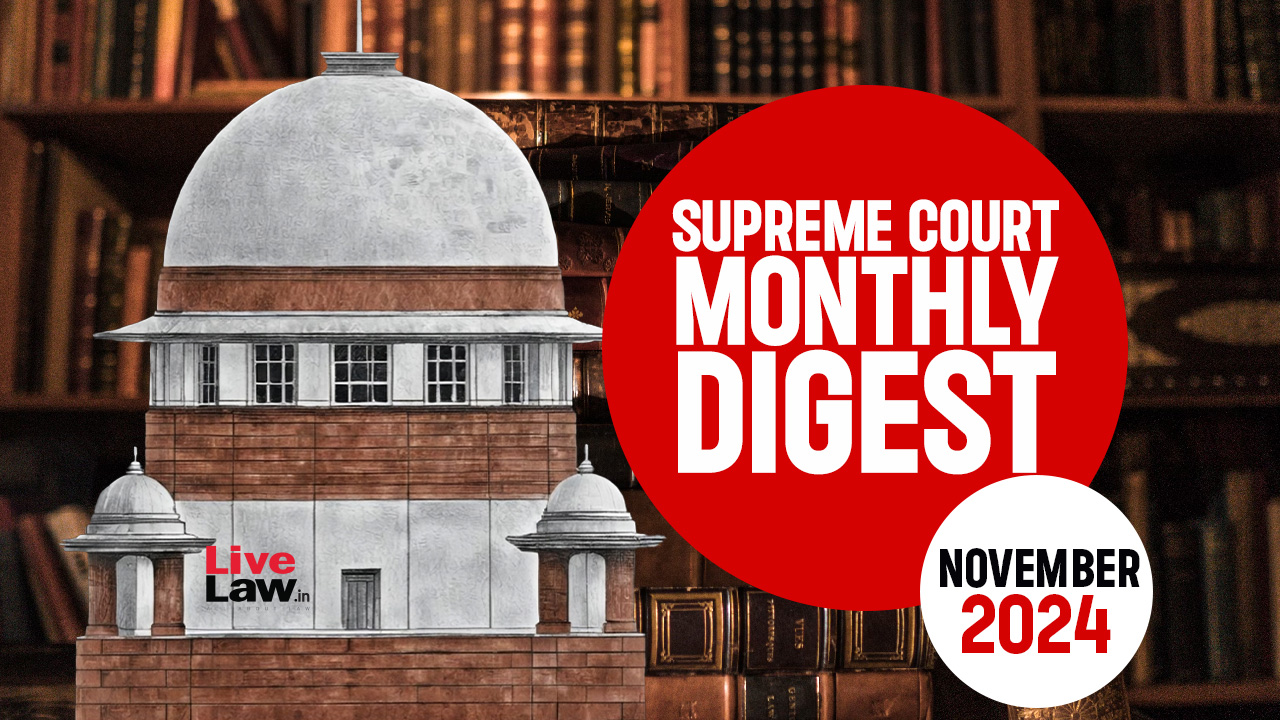

![Calcutta High Court Annual Digest: Part-II [Citations: 100-199]](https://www.livelaw.in/h-upload/2024/12/23/578091-calcutta-high-court-annual-digest-2024.jpg)
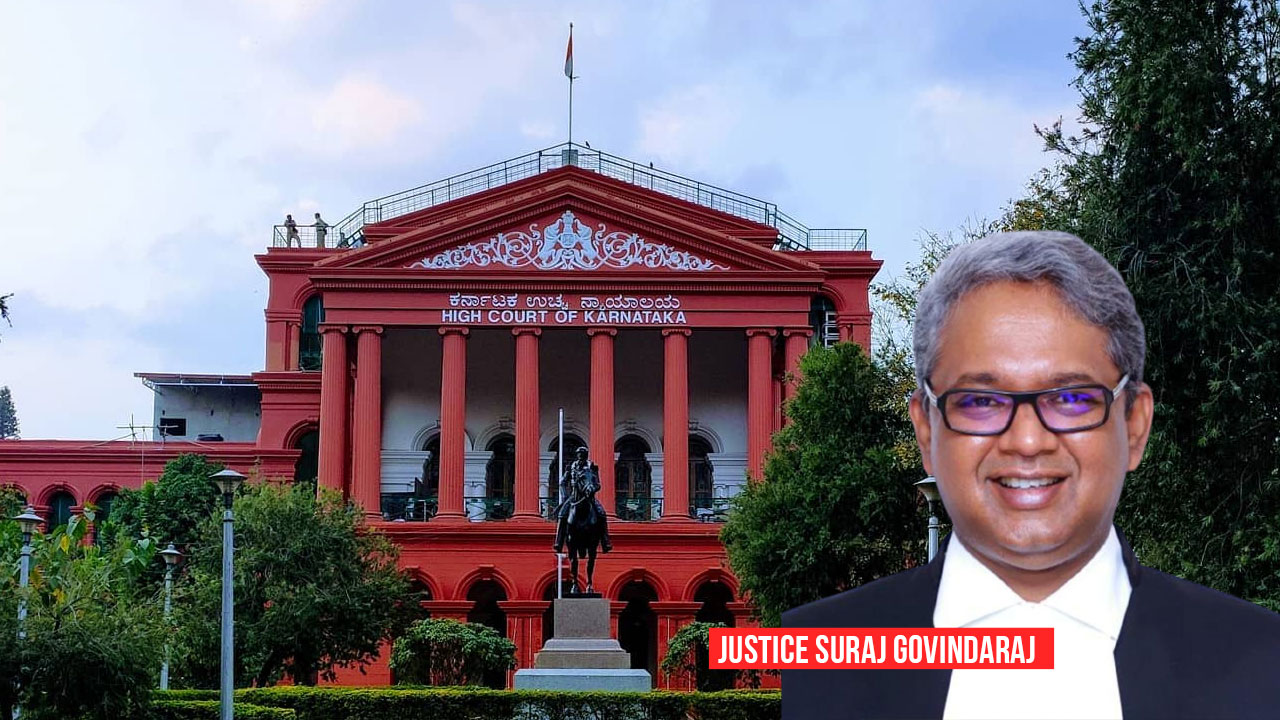

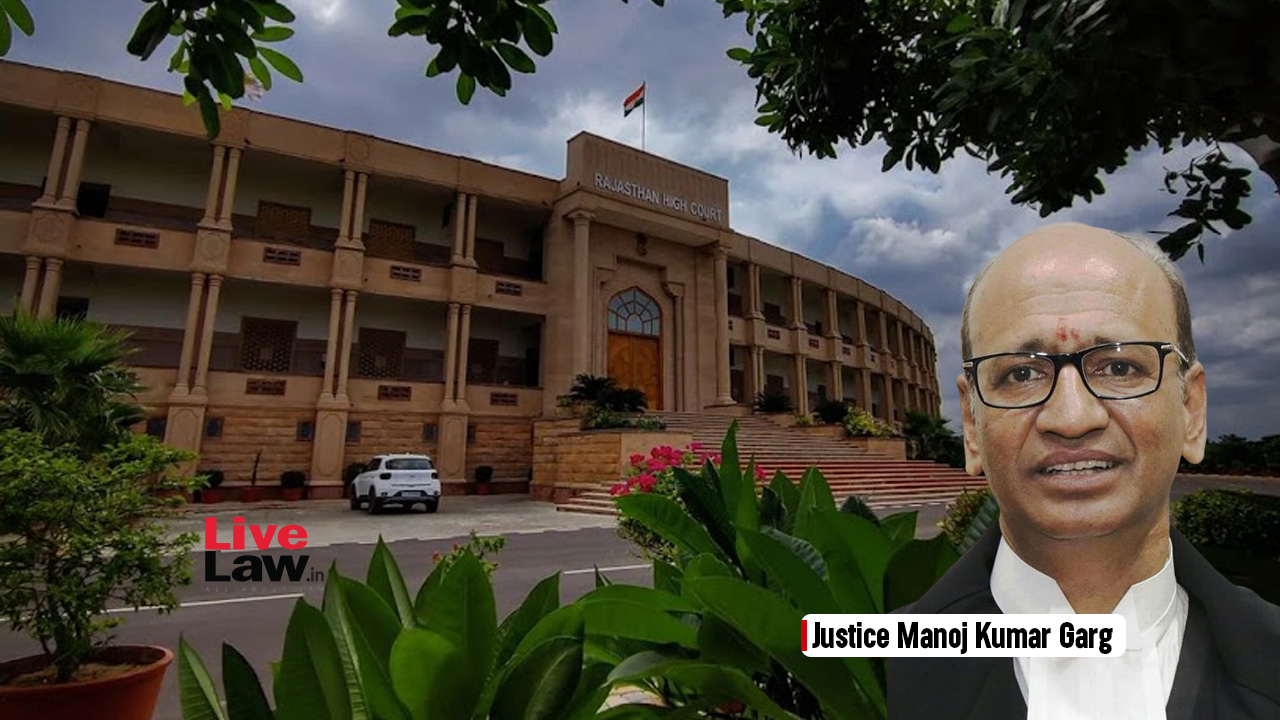
![Jammu & Kashmir And Ladakh High Court Annual Digest: Part II Citation [ 175 - 356]](https://www.livelaw.in/h-upload/2024/12/29/578797-1500x900577411-jammu-and-kashmir-high-court-annual-digest-2024.jpg)
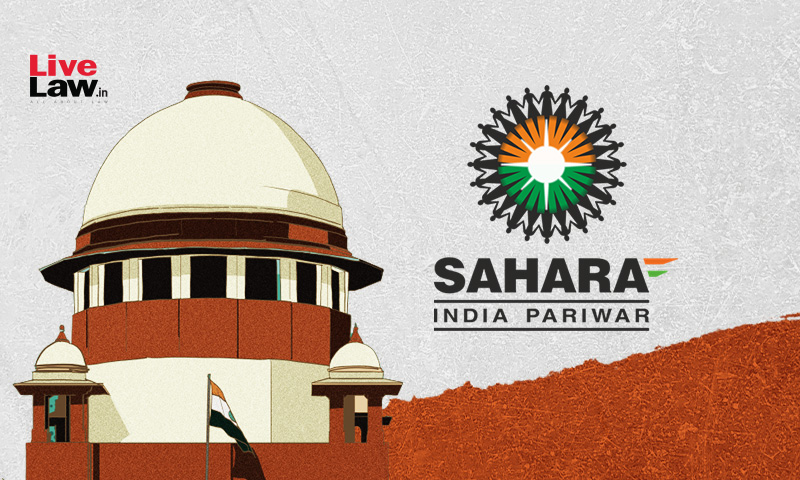
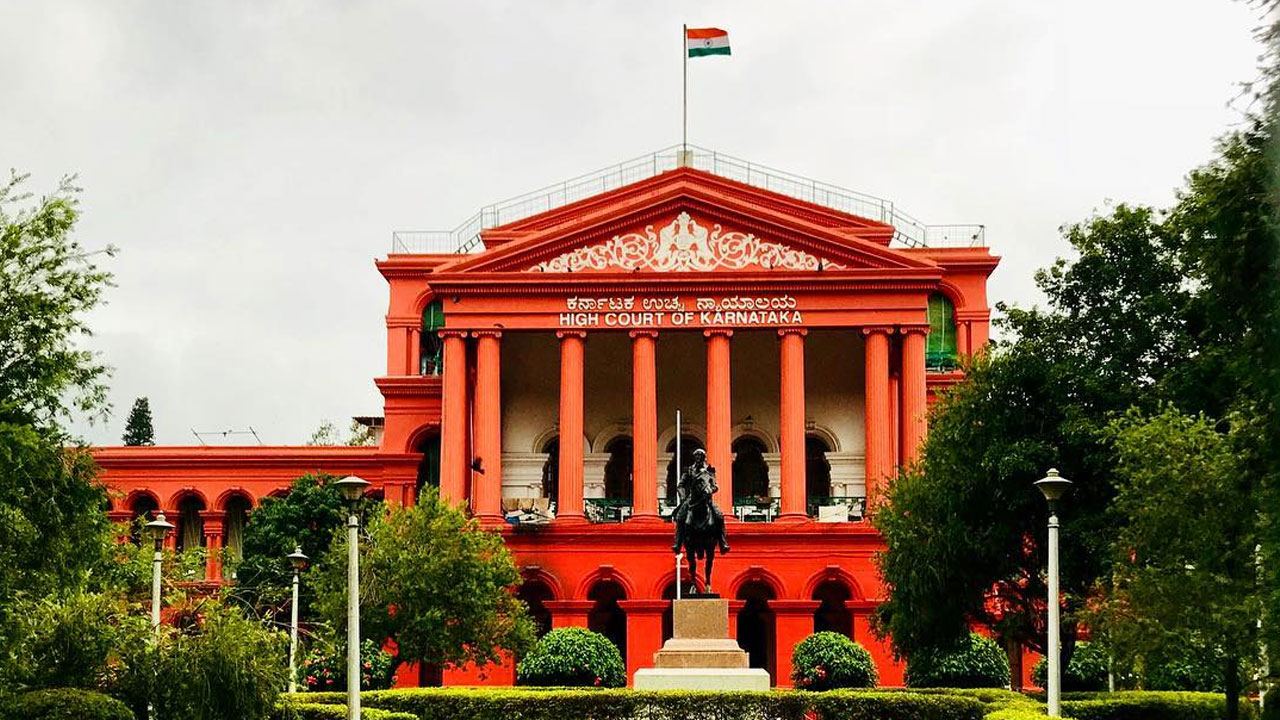
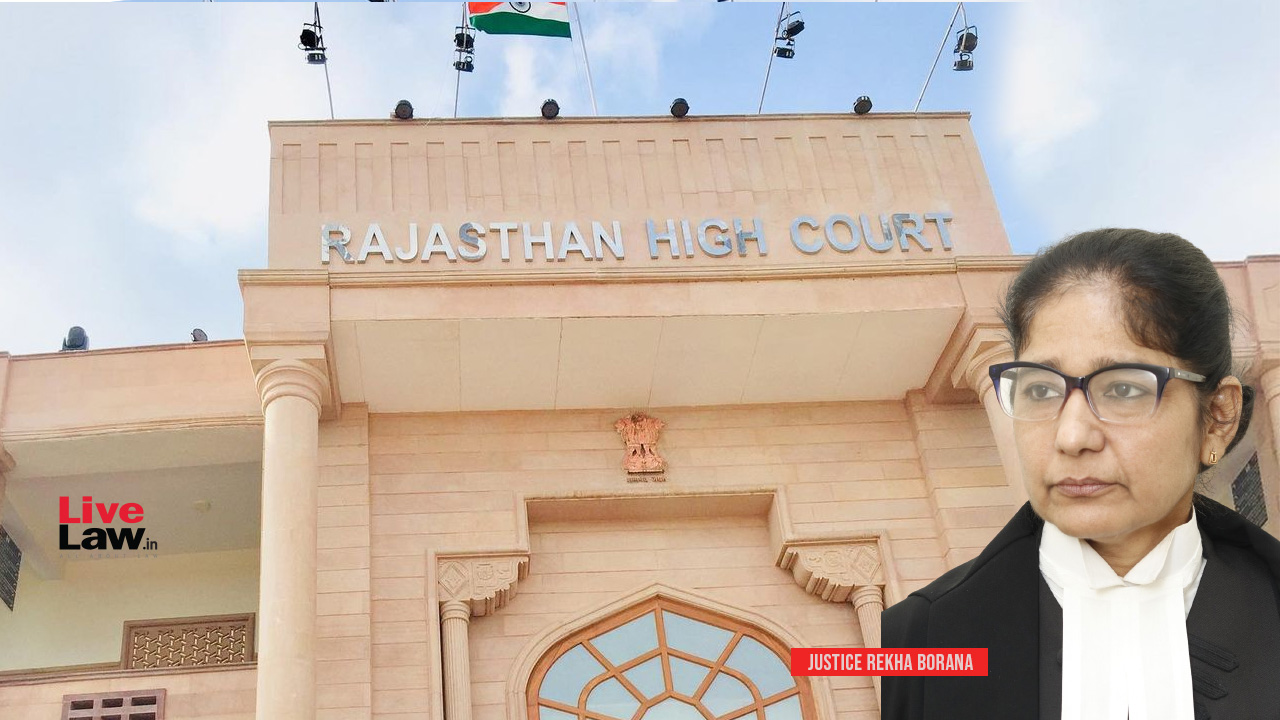
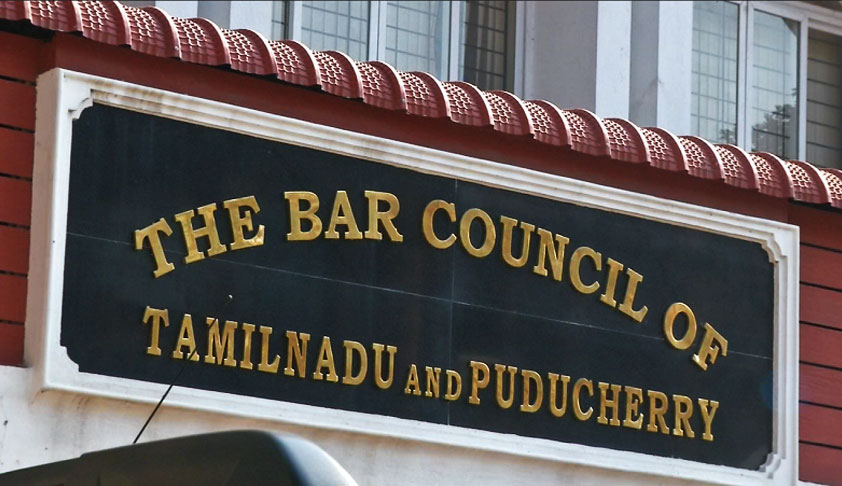
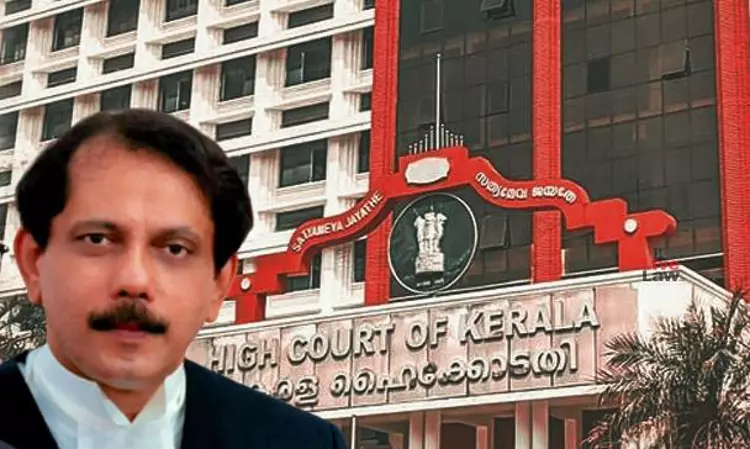
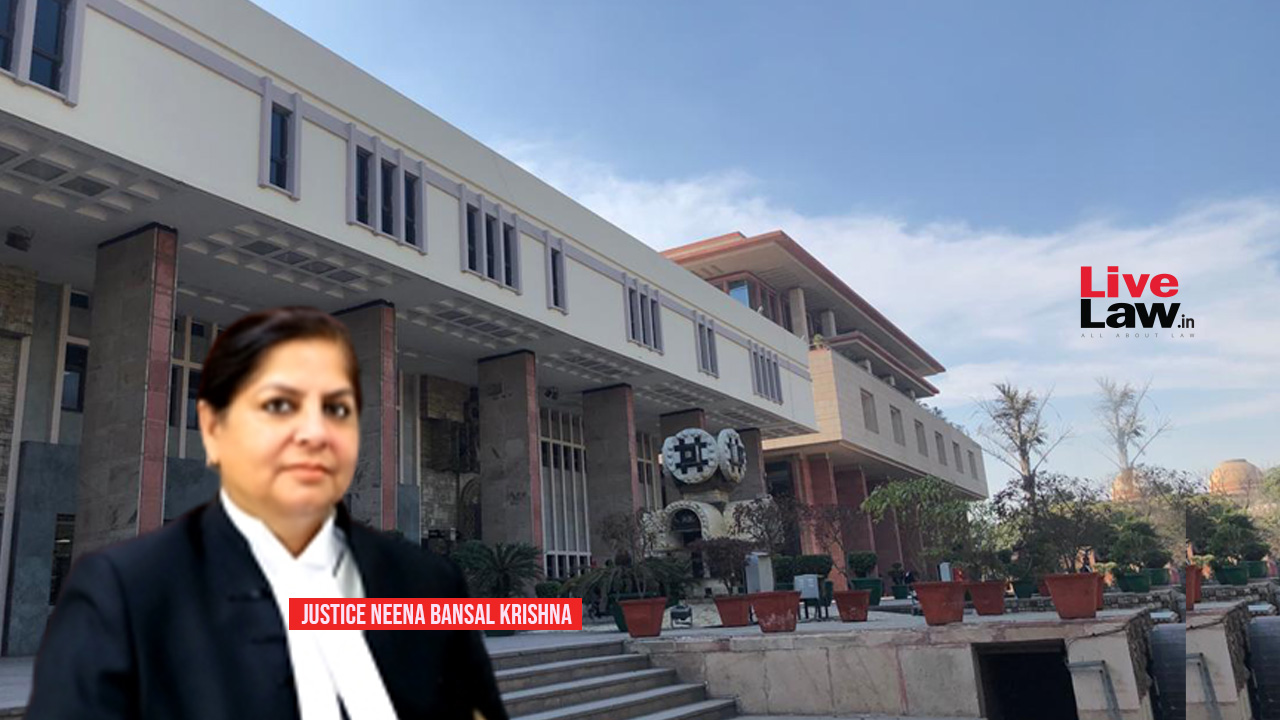

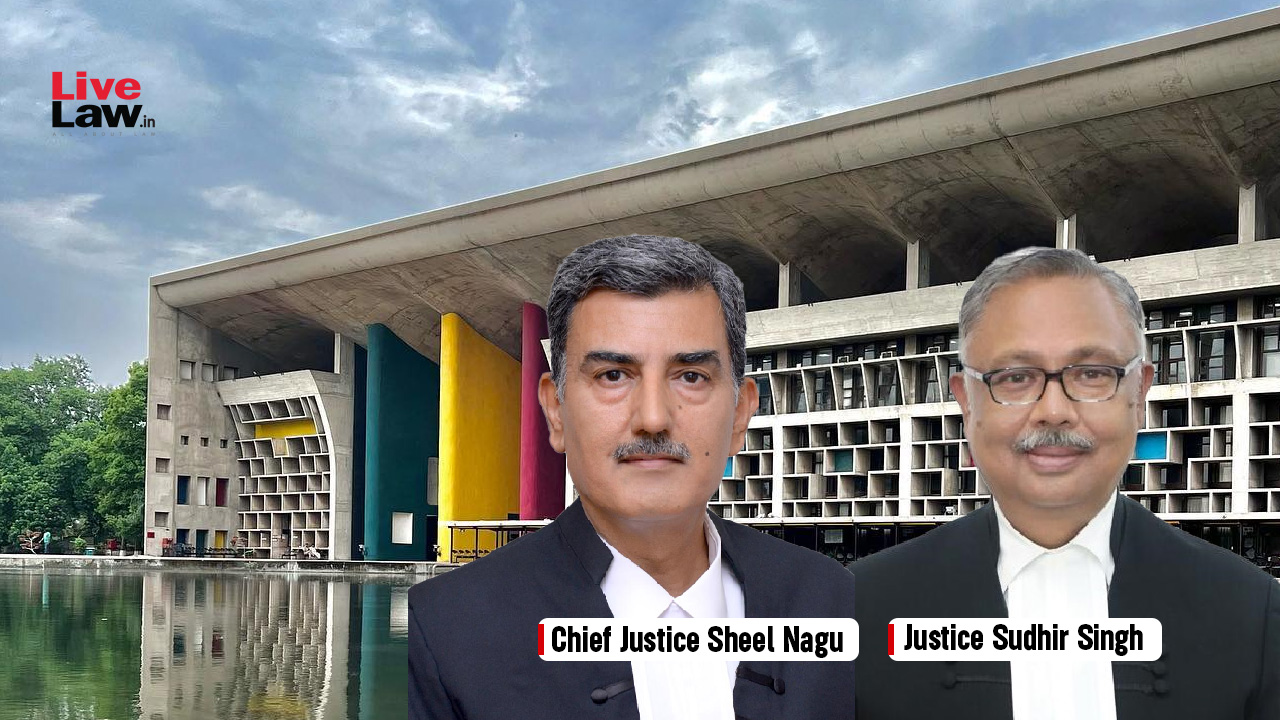
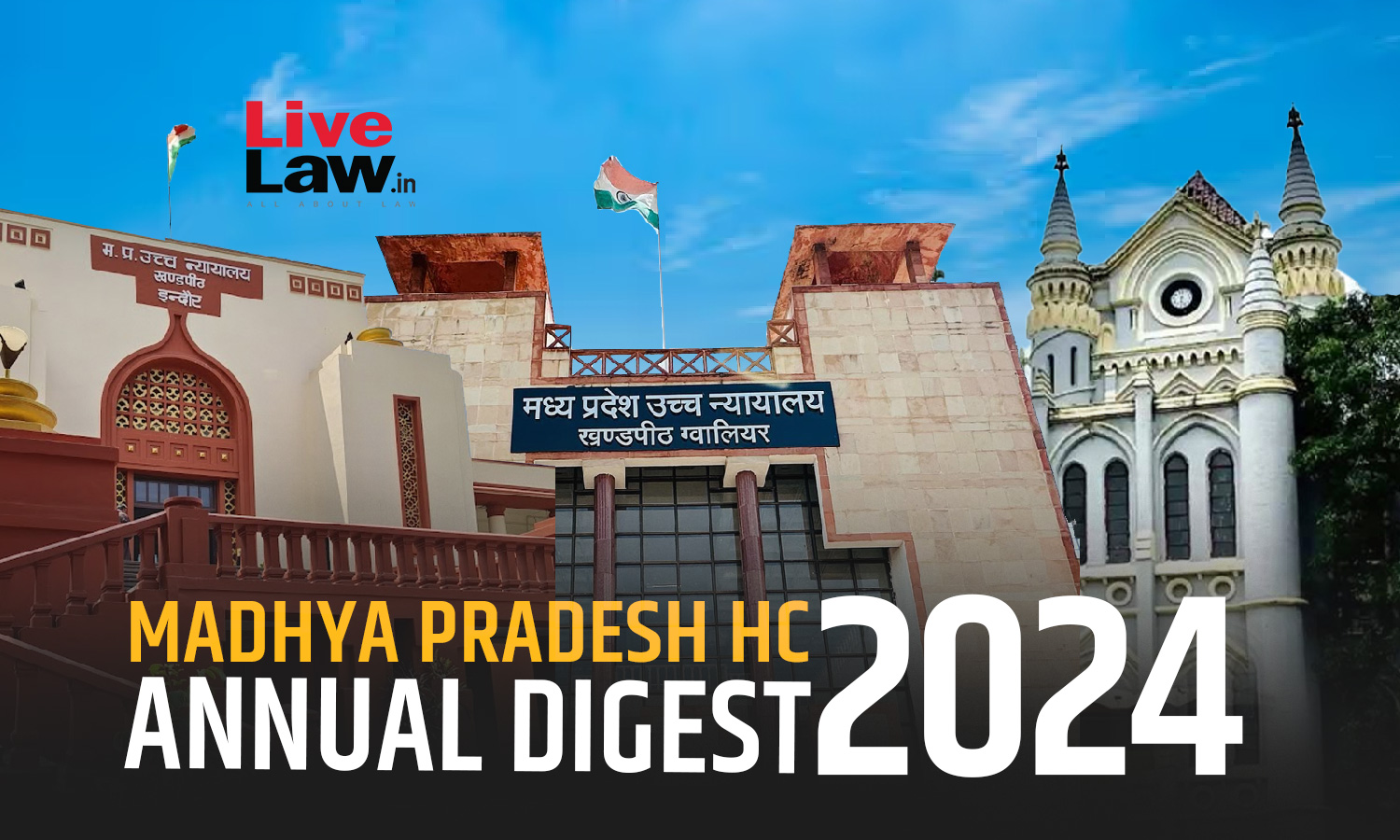
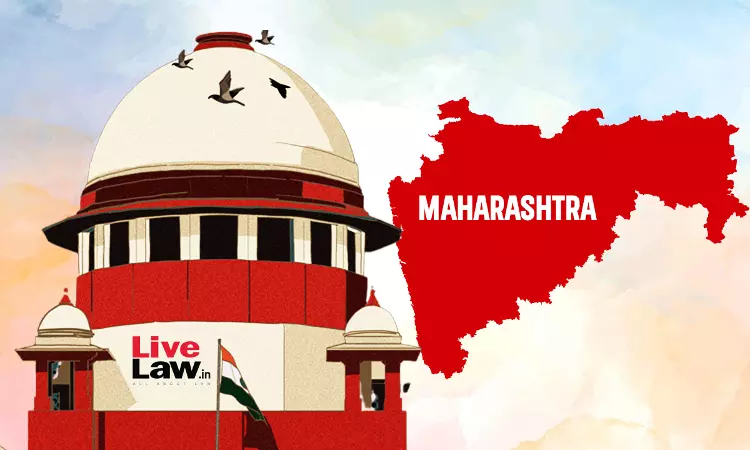
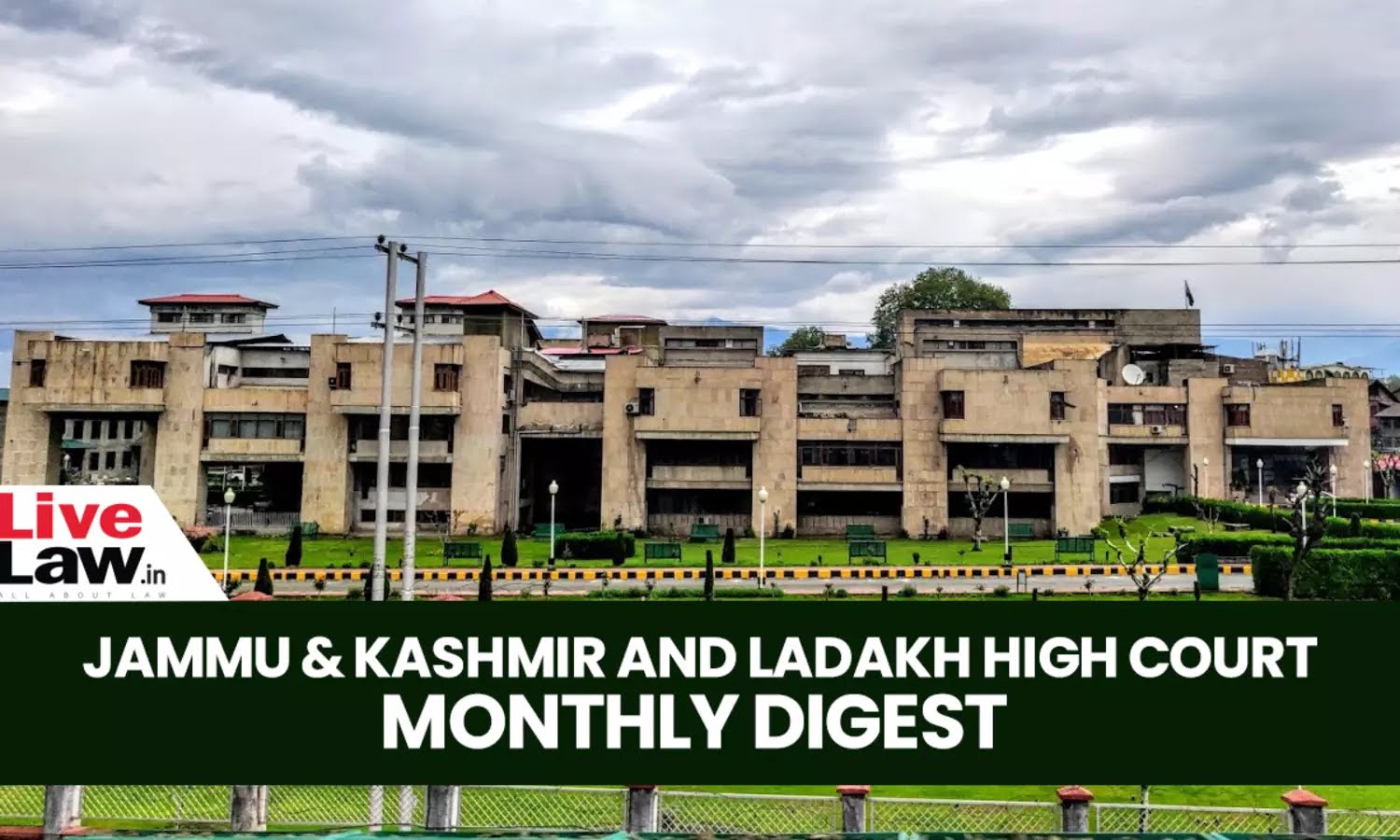
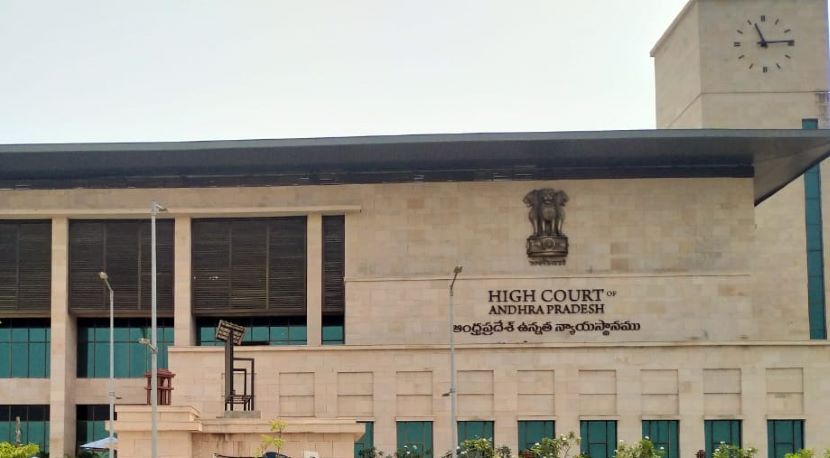
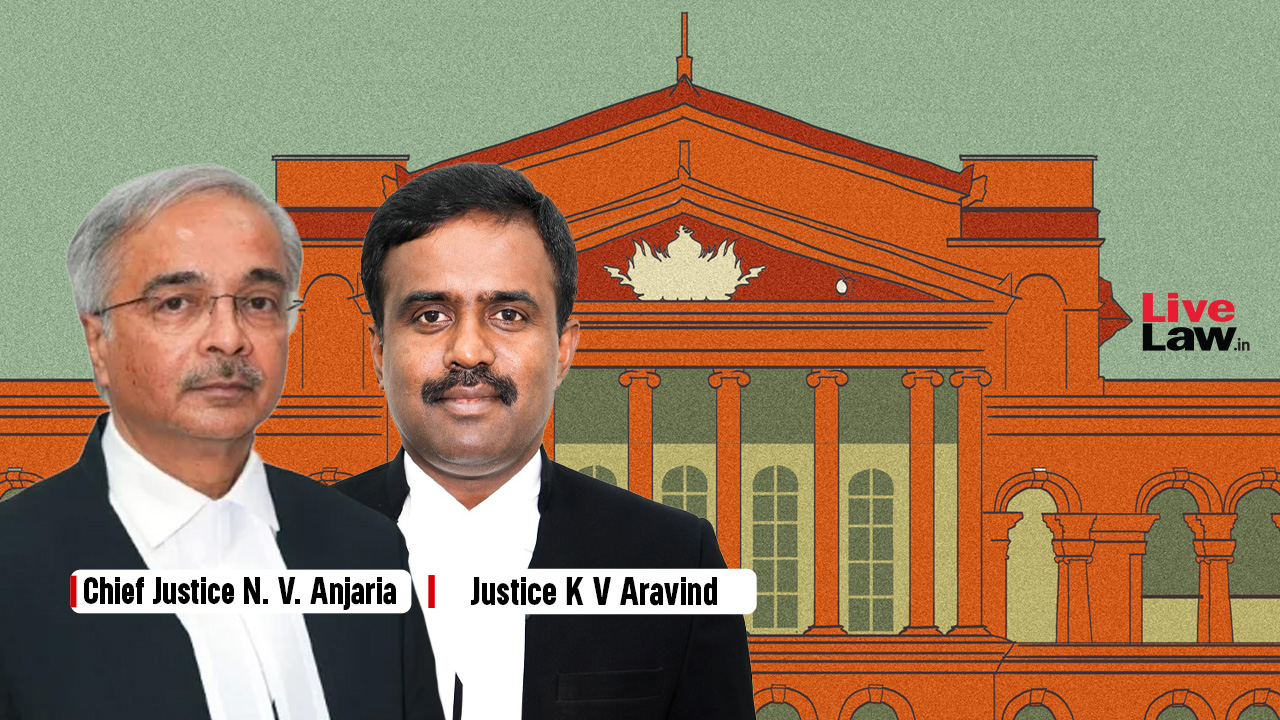
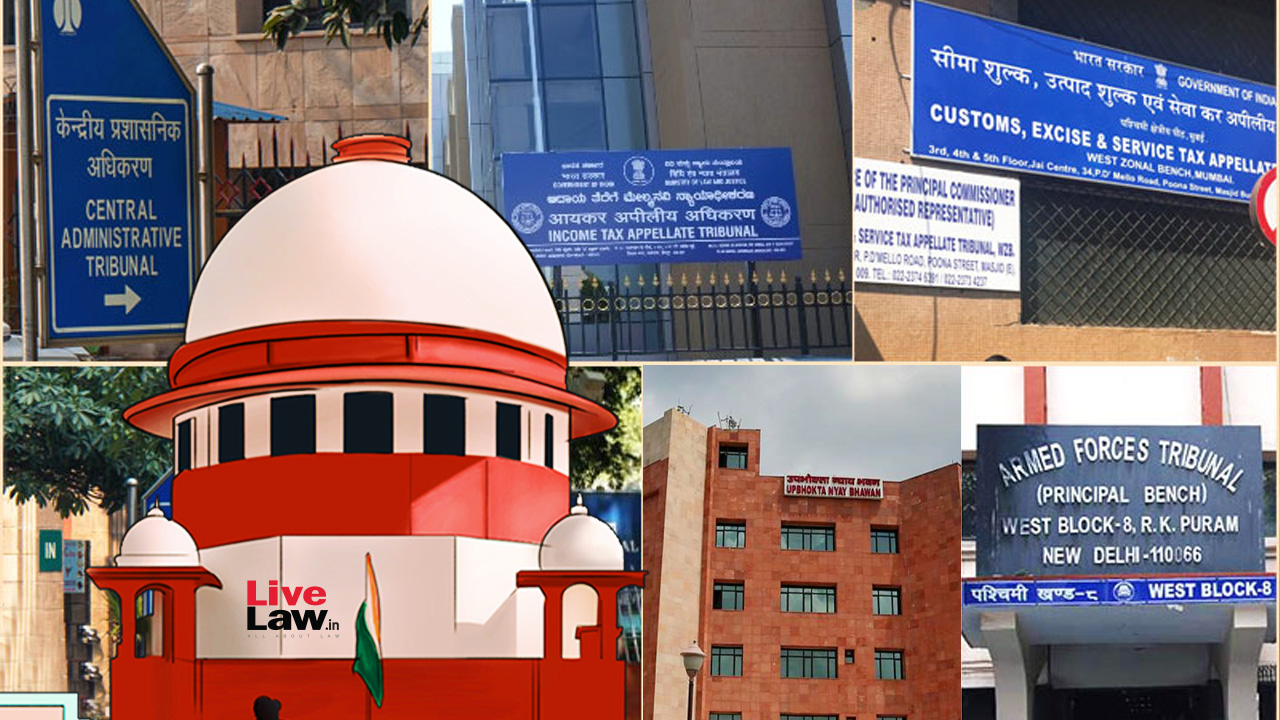
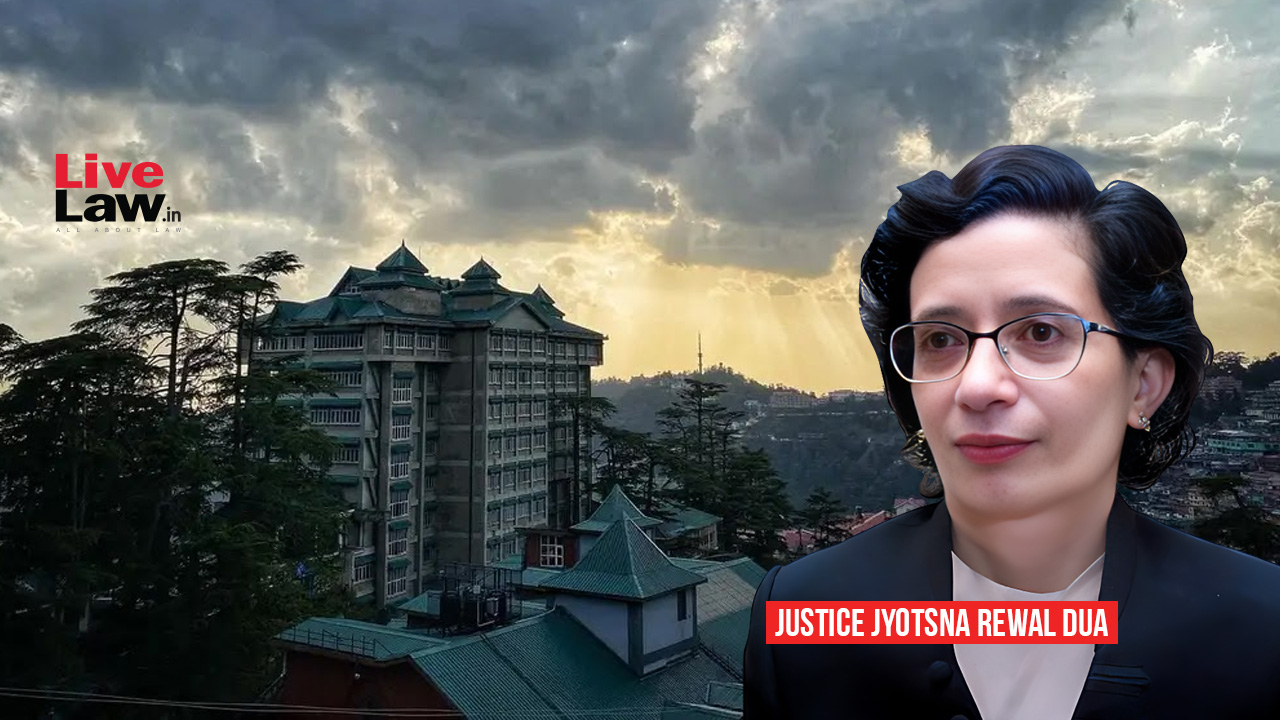
![Allahabad High Court Annual Digest 2024 [Part II]](https://www.livelaw.in/h-upload/2024/12/23/578086-allahabad-hc-annual-digest-2024.jpg)
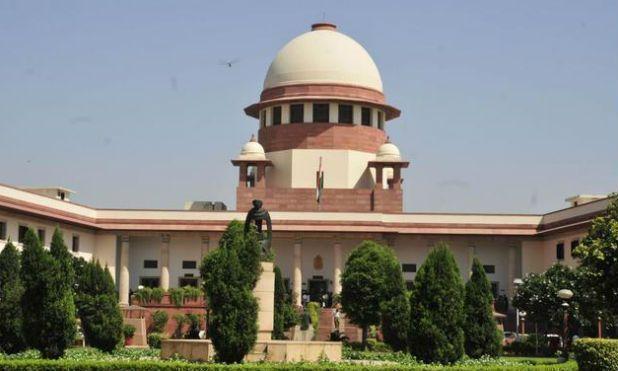

![Bombay High Court Annual Digest 2024 [Part II]](https://www.livelaw.in/h-upload/2024/12/19/577394-bombay-high-court-annual-digest-2024.jpg)

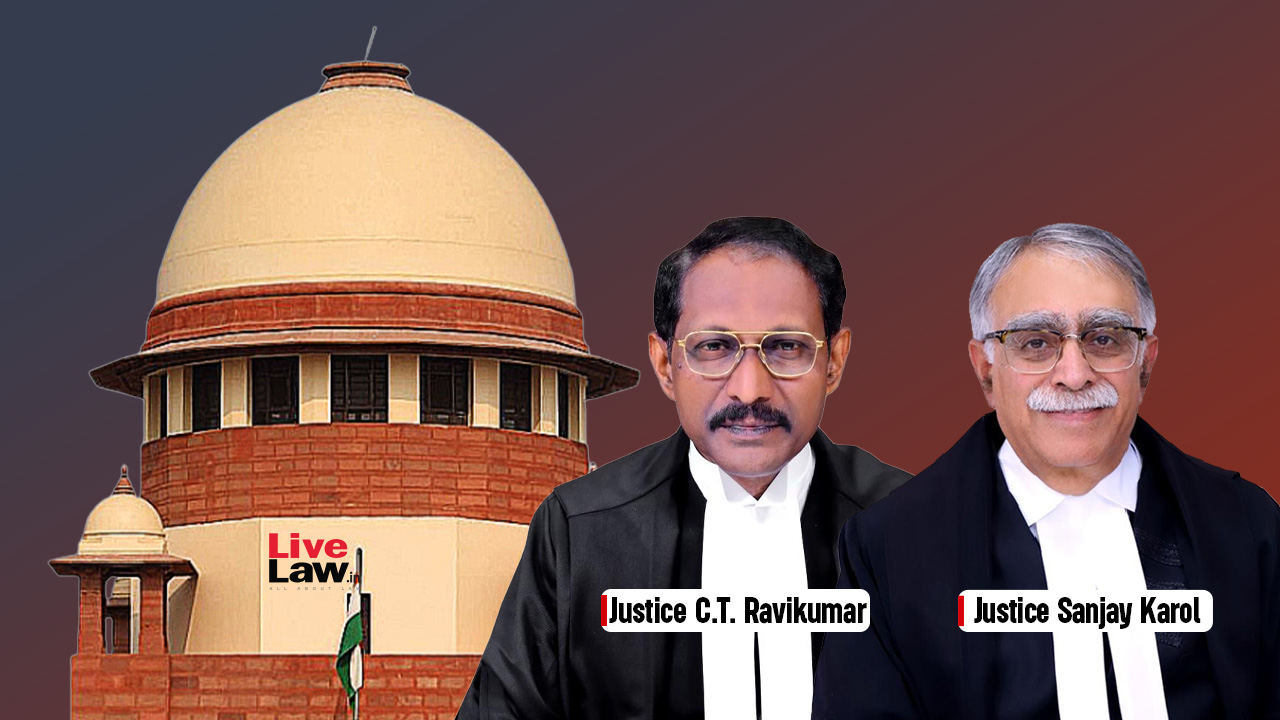

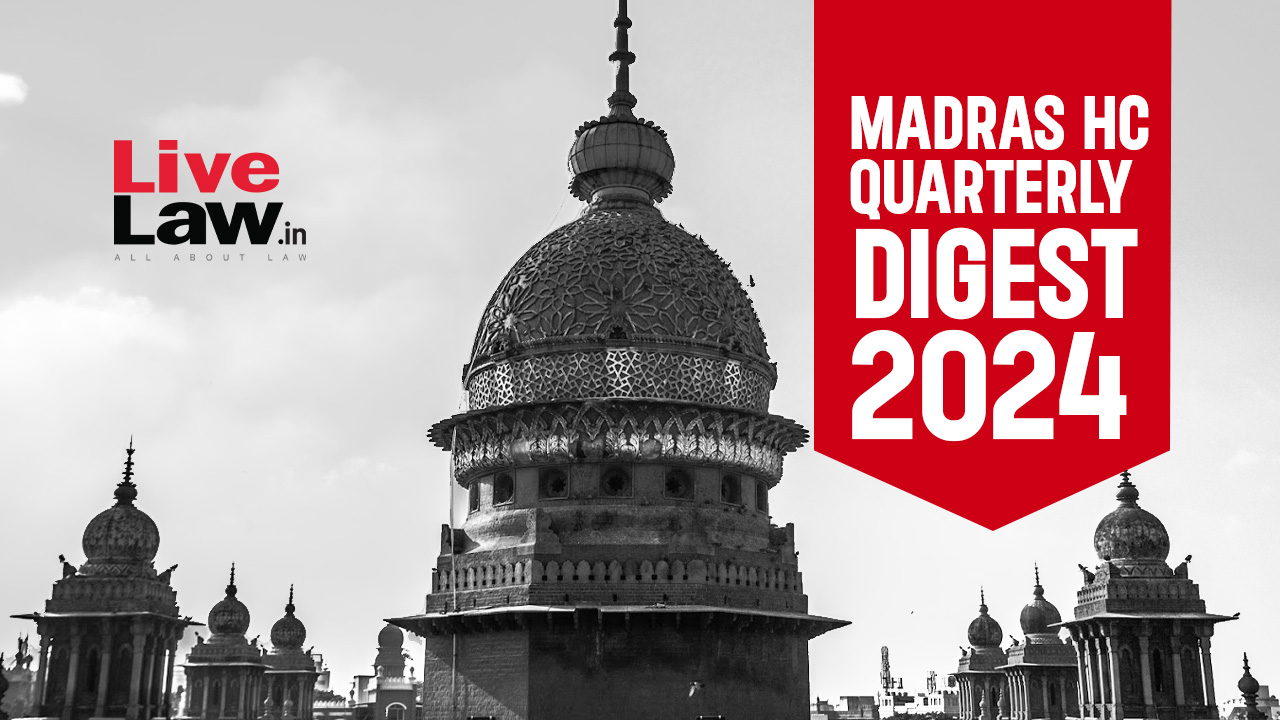
![Calcutta High Court Annual Digest: Part-I [Citations: 1-99]](https://www.livelaw.in/h-upload/2024/12/23/578091-calcutta-high-court-annual-digest-2024.jpg)
